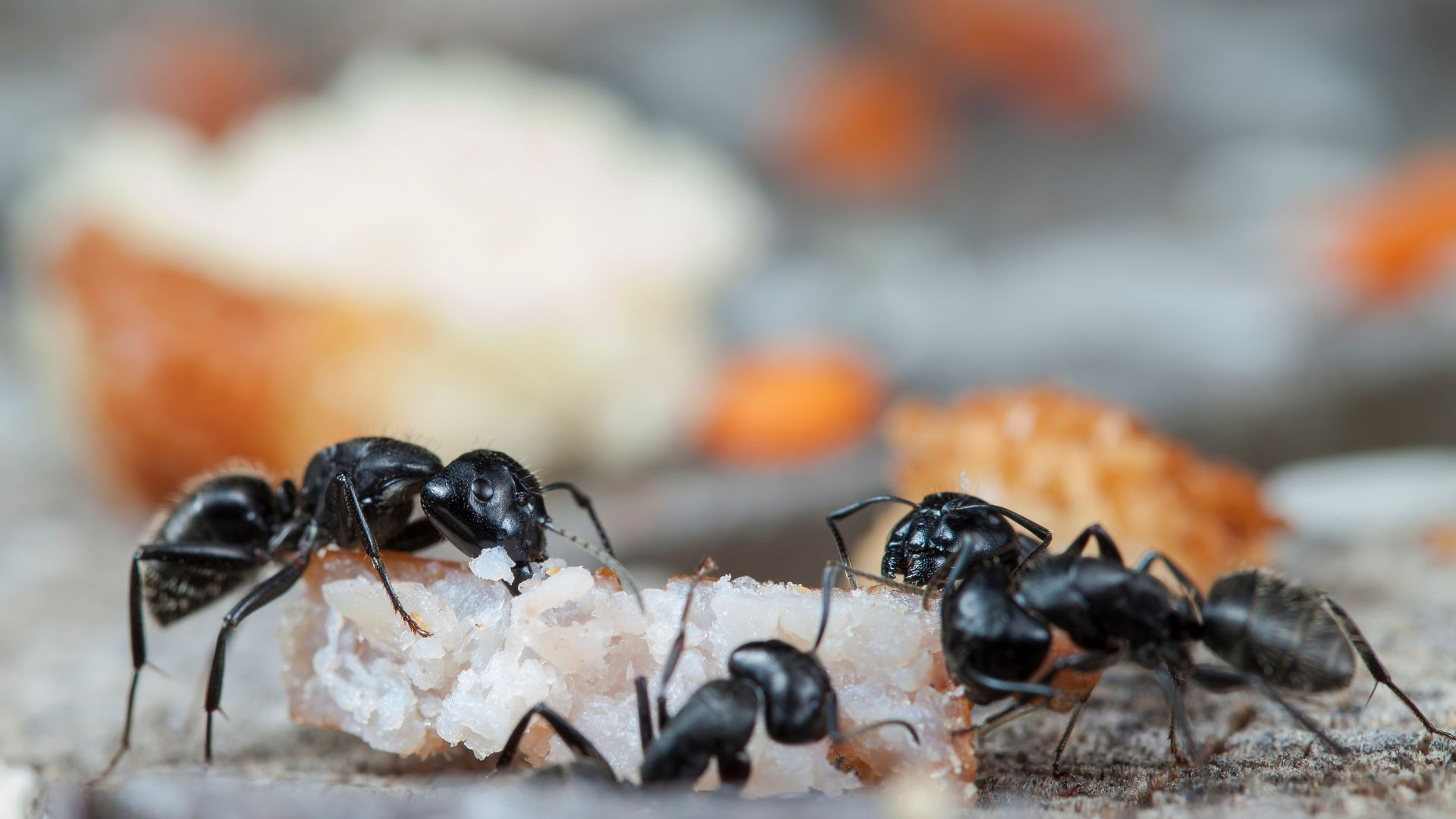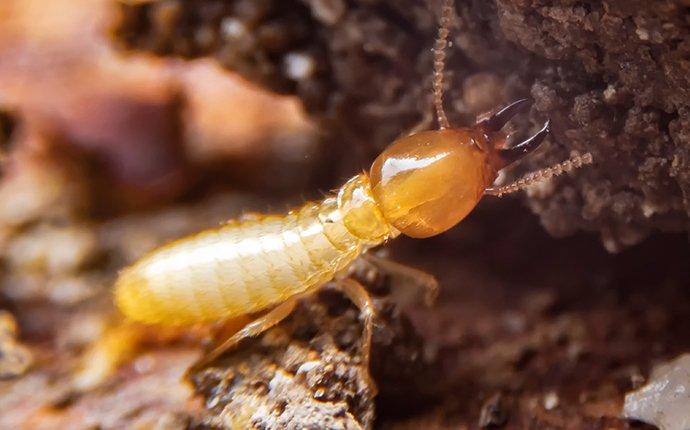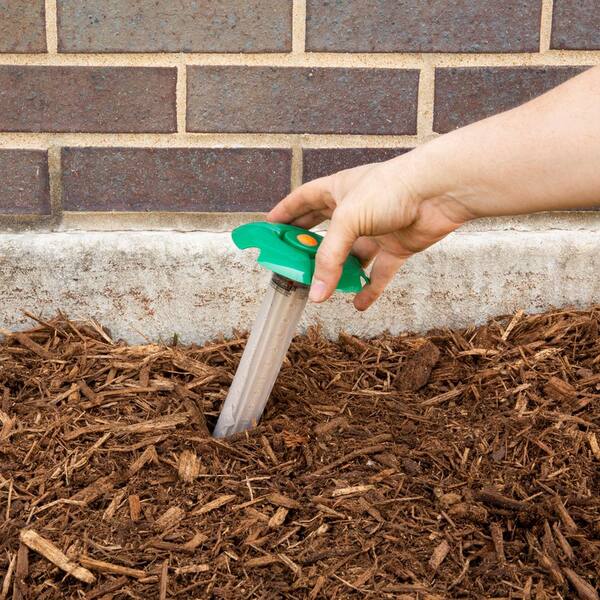Expert Termite Control Services: Safeguard Your Home from Termite Damages
Wiki Article
Environmental Impact of Bug Control: Balancing Effectiveness With Sustainability
The environmental influence of bug control is an essential concern that requires a delicate balance between achieving effectiveness in ensuring and taking care of parasites sustainability of our communities. From the usage of unsafe chemicals that leak into our soil and water to the unintentional effects on non-target varieties, the repercussions of traditional parasite control methods are far-ranging.Damaging Chemicals in Pest Control
The utilization of damaging chemicals in bug control presents considerable environmental and wellness risks that call for careful consideration and reduction approaches. Pesticides, herbicides, and pesticides are commonly used to get rid of pests, but their extensive application can result in unplanned effects. These chemicals can infect dirt, water sources, and the air, impacting not only the targeted pests but likewise helpful pests, wild animals, and people.
To resolve these dangers, incorporated insect administration (IPM) methods are being promoted as a more lasting alternative. IPM entails a mix of approaches such as biological control, habitat manipulation, and the targeted use of pesticides as a last hotel (ant control harrisburg nc). By embracing an all natural method to pest control, we can minimize the environmental and health effects connected with damaging chemicals while successfully handling pest populations
Influence On Non-Target Variety
Considering the unplanned consequences of pest control methods, the influence on non-target species is a critical aspect that needs detailed assessment. While parasite control steps aim to target particular insects, other organisms in the ecosystem may be unintentionally affected. Non-target types, consisting of helpful pests, birds, mammals, and even plants, can suffer direct or indirect harm from pesticide applications or biological control approaches.Pesticides created to deal with a particular insect pest might hurt pollinators like or natural killers such as ladybugs. Biological control representatives, if not species-specific, can posture threats to unplanned targets, interfering with the environmental equilibrium.
To mitigate the influence on non-target varieties, integrated insect monitoring (IPM) methods that stress an alternative technique to pest control are advised. These approaches prioritize making use of eco-friendly practices, decreasing damage to beneficial microorganisms while efficiently handling pest populations. Conducting thorough risk evaluations and keeping an eye on the outcomes of pest control initiatives are important action in securing non-target species and promoting overall environment health and wellness.
Dirt and Water Contamination
Unexpected ecological effects of parasite control approaches extend past impacting non-target types, with significant implications for soil and water contamination. Chemicals, herbicides, and chemical plant foods made use of in parasite control can seep into the soil and infect groundwater, presenting a danger to both earthbound and marine ecological communities. Soil contamination can interfere with the balance of bacteria essential for vitamins and mineral cycling and plant development, resulting in reduced soil fertility and efficiency. These chemicals can linger in the atmosphere for extended durations, collecting in the soil and potentially entering the food chain.Water contamination is an additional critical problem connected with parasite control practices. Overflow from agricultural areas treated with pesticides can lug these chemicals into neighboring water bodies, influencing aquatic microorganisms and water top quality. Pollutants in water sources can have significant effects, affecting not only marine life however additionally human health and wellness with the usage of polluted water or water microorganisms. To reduce dirt and water contamination from parasite control activities, integrated parasite management strategies that prioritize sustainability and minimize chemical inputs are vital.
Air Pollution From Chemical Use
Exposure to air-borne pesticides during farming applications poses a considerable issue for air contamination control measures. They can volatilize right into the air and form unpredictable organic substances (VOCs) and various other air-borne pollutants when pesticides are sprayed onto plants - ant control. These chemicals can add to the formation of ground-level ozone, a significant component of smog that can have damaging effects on human health and wellness, crop productivity, and general air top quality. Additionally, pesticide drift, where pesticides are lugged by the wind to unintended locations, can lead to here are the findings the contamination of neighboring communities and water bodies.
Methods for Sustainable Insect Control
In the world of agricultural techniques, carrying out lasting parasite control approaches is paramount for maintaining environmental equilibrium and protecting plant returns. Sustainable insect control stresses making use of eco pleasant techniques to handle insect populaces efficiently while lessening harm to non-target microorganisms and ecological communities. Integrated Bug Monitoring (IPM) is a commonly embraced method that combines organic, cultural, physical, and chemical control techniques to accomplish long-lasting insect monitoring remedies.One key technique in sustainable pest control is promoting biodiversity within agroecosystems. By boosting all-natural adversaries of bugs, such as parasitoids and killers, farmers can decrease the requirement for synthetic chemicals. Crop rotation and diversity are additionally efficient methods to disrupt pest life process and develop less positive problems for pests to grow. In addition, making use of pest-resistant crop varieties and using methods like trap cropping can help in reducing pest pressure without relying heavily on chemical interventions. Eventually, by integrating these lasting parasite control strategies, farmers can achieve an equilibrium in between pest monitoring efficiency and ecological stewardship.
Final Thought
To conclude, the ecological impact of pest control approaches have to be carefully considered to balance efficiency with sustainability. Harmful chemicals utilized in insect control can bring about dirt and water contamination, air contamination, and damage non-target types - ant control services. It is essential to apply sustainable bug control approaches to lessen these adverse impacts on the environment and advertise a healthier community for future generationsBy taking on a holistic strategy to pest control, we can minimize the ecological and health influences associated with damaging chemicals while properly managing pest populations.

To reduce the air contamination created by pesticide usage, it is important to embrace integrated parasite monitoring approaches that focus on the use of non-chemical insect control techniques, such as crop turning, all-natural killers, and immune crop varieties. Sustainable parasite control stresses the use of environmentally friendly approaches to manage bug populations effectively while decreasing injury to non-target organisms and environments. Integrated Parasite Management (IPM) is an extensively taken on strategy that integrates biological, cultural, physical, and chemical control techniques to accomplish lasting insect monitoring services.
Report this wiki page